

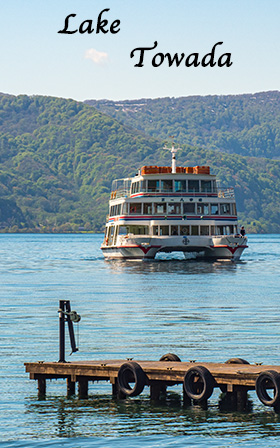
|
Lake Towada is the caldera lake of a 400 meter high active volcano. With a periphery of about 46kms and an average depth of 71 meters, its clear cold waters are drained by the Oirase river. I came here on the JR bus from Aomori. My JR regional rail pass does not cover the 3090 yen bus fare. I stayed three nights at the backpackers in the lakeside town of Yasumiya. The first night there was a Candian guy; the second, a number of Japanese; the third, only myself. Simple meals, eg curry and rice, were served at the backpackers for under 1000 yen. |
Though the day I arrive it was cold and rainy, the second and third days of my visit were warm and sunny. They were nice days for for casual exploration. Along the shore several rowing boats and paddle ducks gave hints to the lake's use as a recreational destination. However, during my visit not many people were around and none of the recreational vessels were on the water.
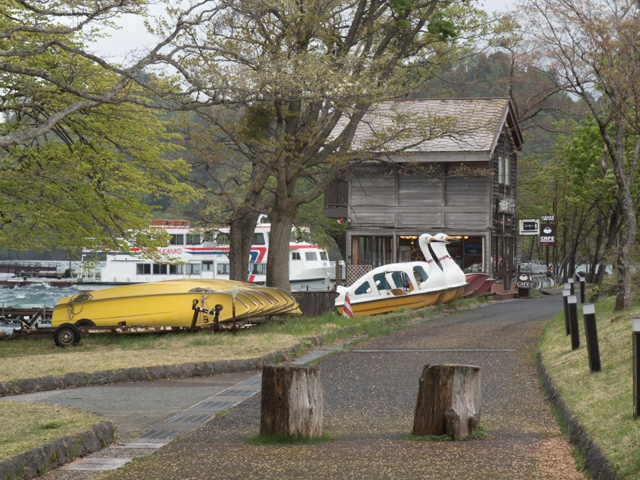
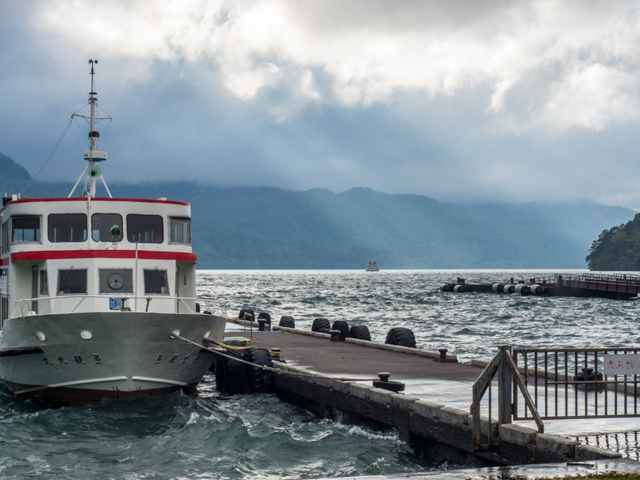
Sections of the shoreline have small beaches of black volcanic sand. Perhaps they were created by the last eruption which occurred in 915, a mere blink, geologically speaking.
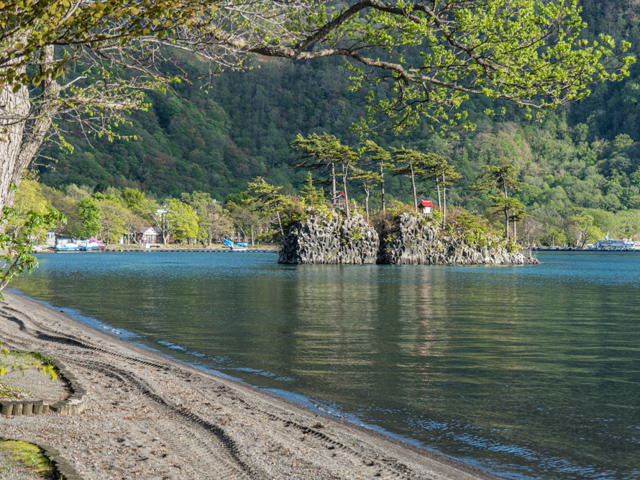
Continuing to walk along the shore I arrived at the Statue of the Maidens. A sculpture of two naked women facing and touching each other by the hand, it was erected in 1953 to help popularise the lake and its associated park.
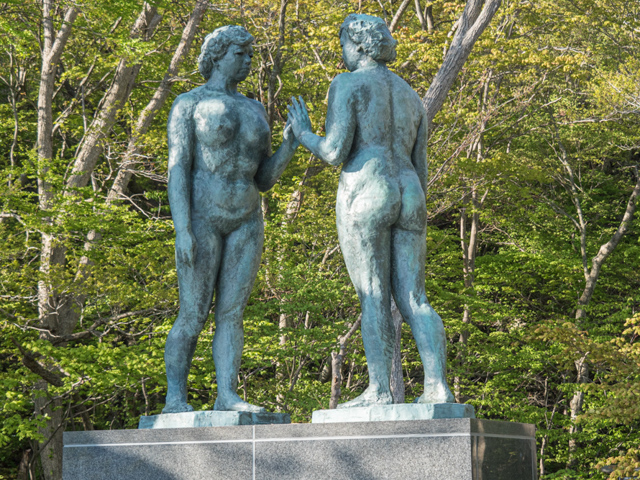
Of more interest to me was Towada-ji shrine, located about 100 meters inland. It can be approached by walking along a cedar lined path named Suginamai (Avenue of Cedars), passing under several tori and climbing up steep stairs.
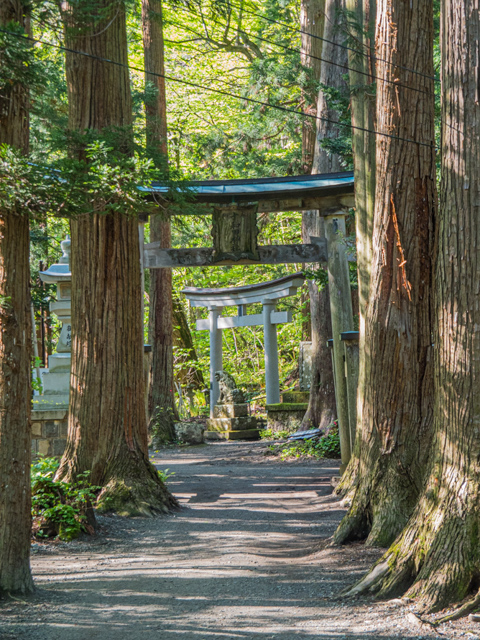
At the main shrine there were instructions of the shrine's homage praying procedures. They are: make a slight bow; ring the bell; throw a coin into the offering box; make two deep bows; clap hands twice; make a deep bow; make a slight bow. I have seen this ritual repeated many times since arriving in Japan.
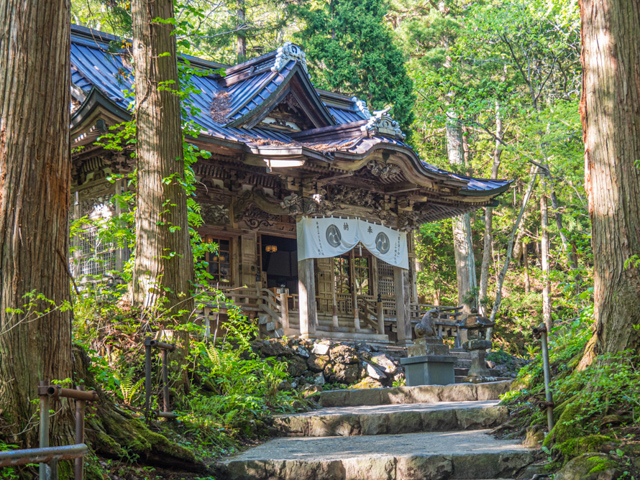
Though places renting pleasure craft were closed, a few shops were selling ice cream, drinks and crab on a stick.
The following day was spent trekking the 14km trail that runs along the Oisase River from Nenikuchi to Yakiyama. There are two options to travel from Yasumiya to Nenokuchi, another town on the shore of Lake Towada, the catamaran or the bus.
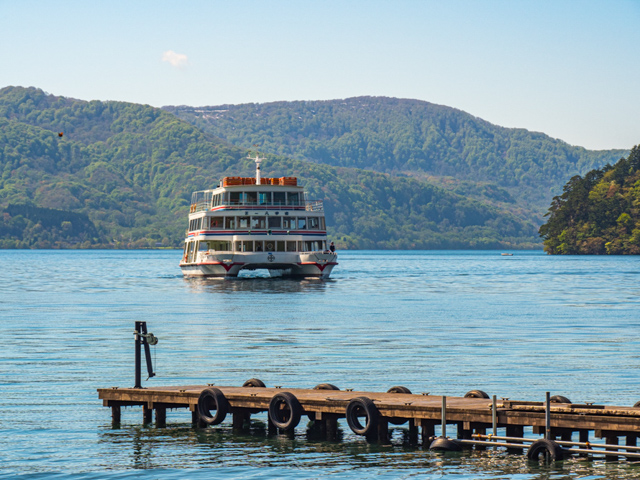
I chose the cateraman which costed 1400 yen. An extra 700 yen buys a return ticket. The lake shore was followed closely for the first half of the trip. The commentary was in Japanese.
The 14km path along the Oirase starts at Nenokuchi. Along the river to Iishi Ge Do there are numerous waterfalls and minirapids. You have to use your imagination a bit to think of it as a wilderness trail. Parallel to the walking track is a road. On the day of my trek few were actually walking on the trail. Most travelled by bus and disembarked at various points along the trail. Some were taking photographs with tripod mounted cameras while others were painting.
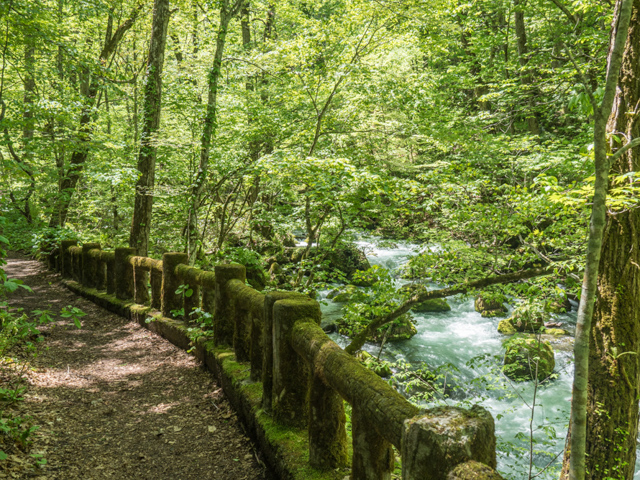
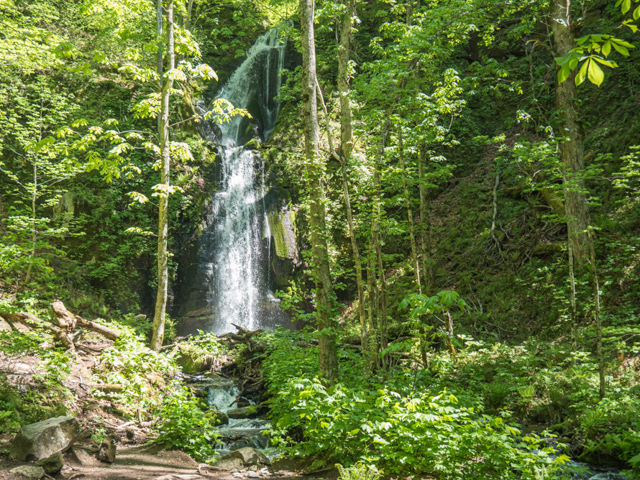
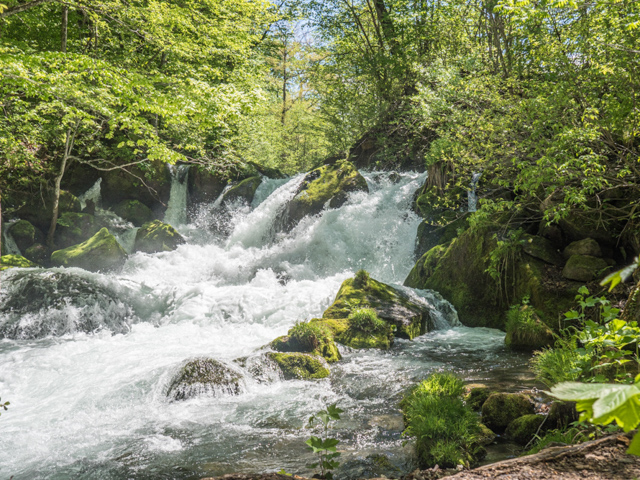
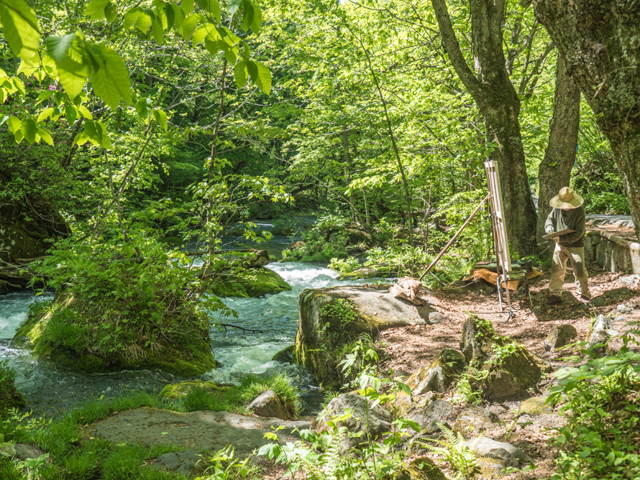
I reached Ishi Ge Do. The name comes fom 'ishi' meaning 'stone" and "ge do" meaning hut. It was a large stone propped up by a giant Katsura tree, giving the appearance of a stone hut.
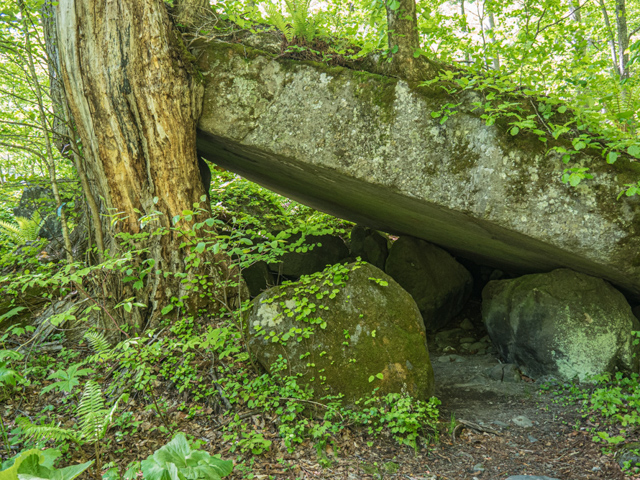
The remaining 5.5 kilometres after Ishi Ge Do are, in my opinion, less interesting. There were no waterfalls and often the trail strayed away from the river. If pressed for time, I would skip it, take the bus to Yakiyama and use the time to visit the Oirase Museum.
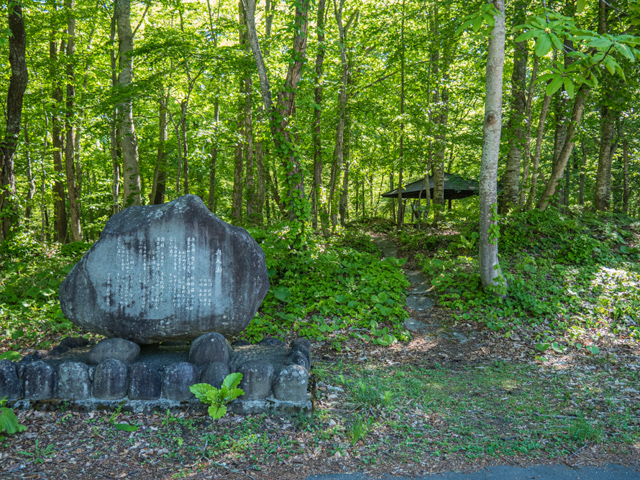
The last bus from Yakiyama to Yasumiya leaves at the relatively early time of 15:58pm. Just something to keep in mind.